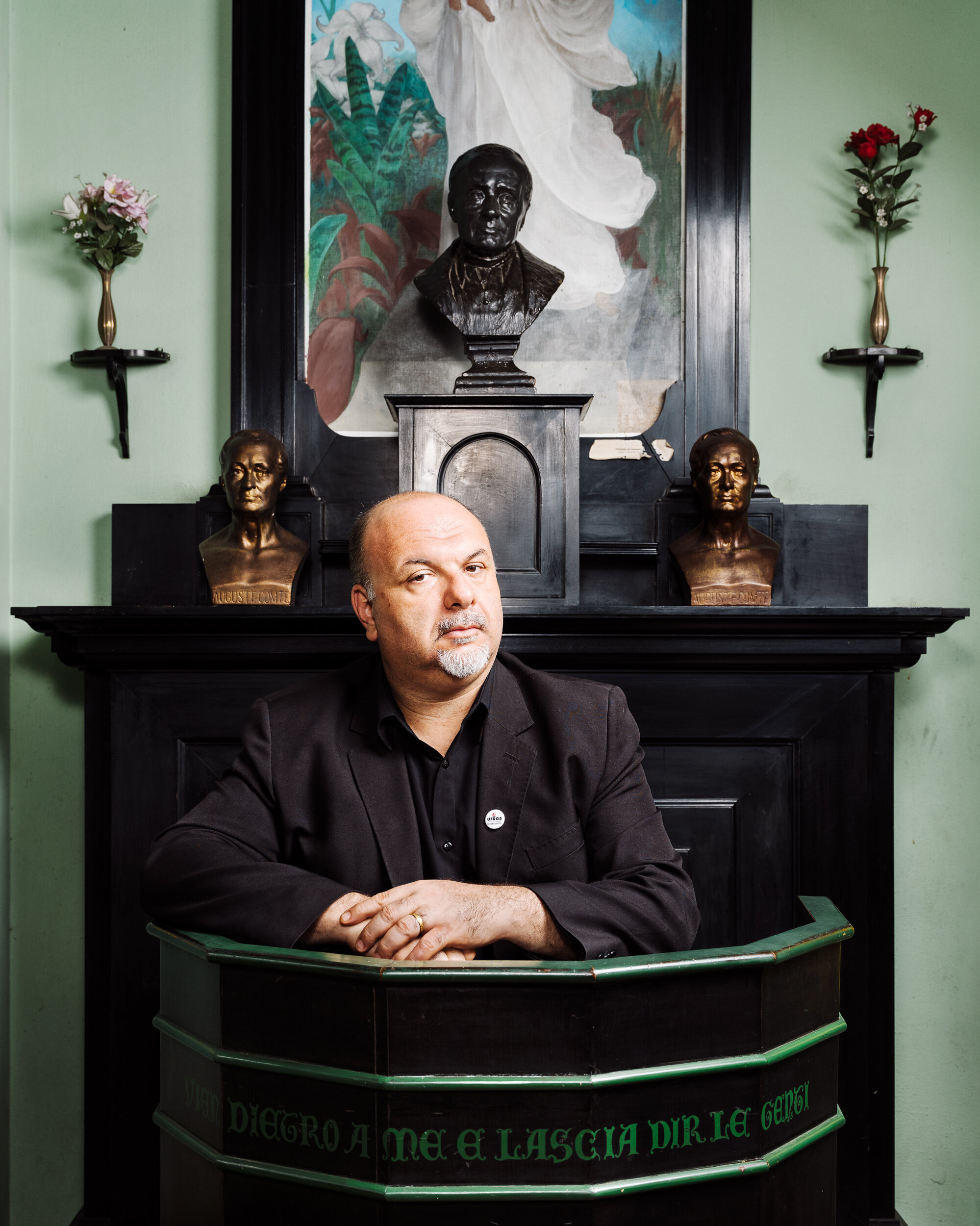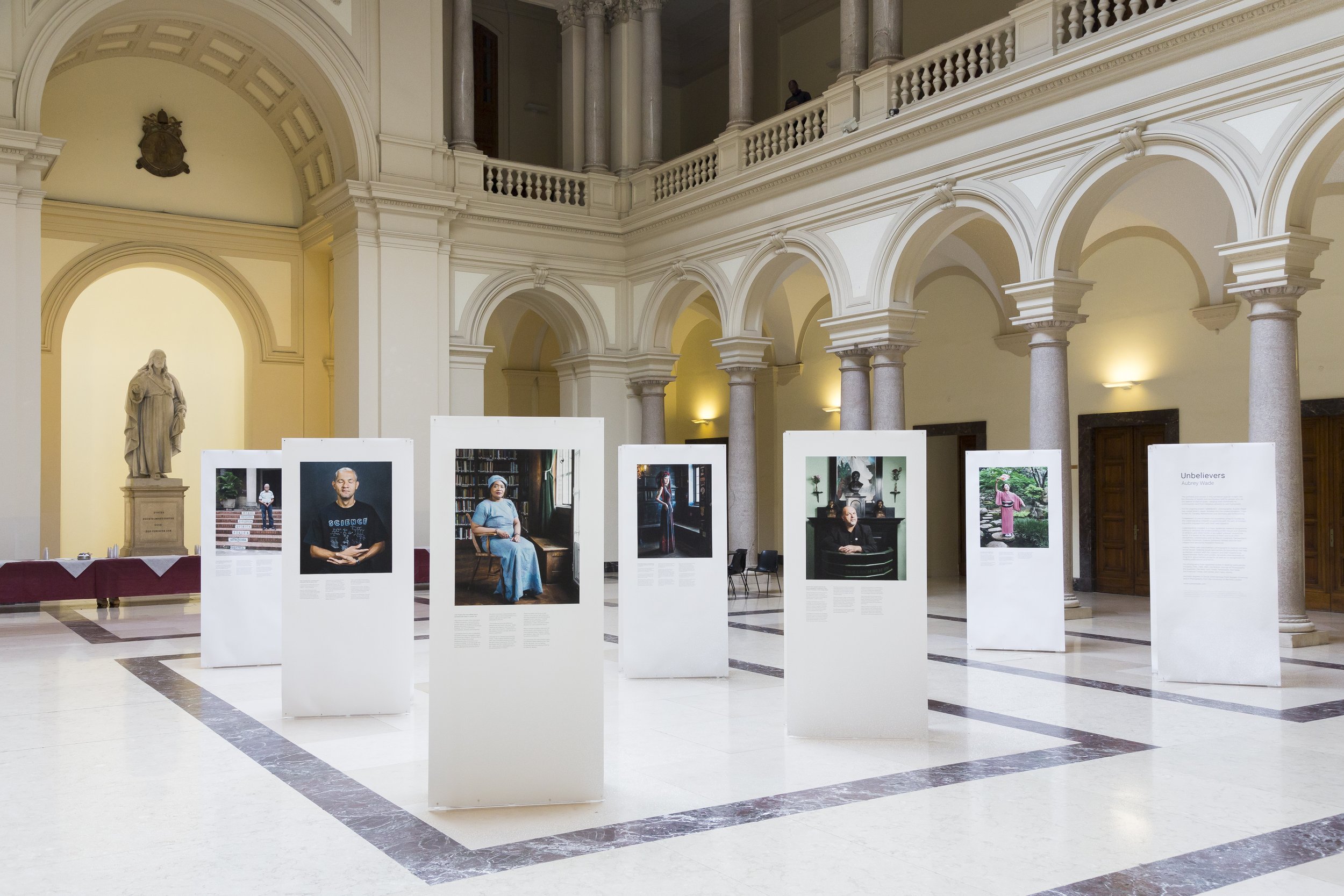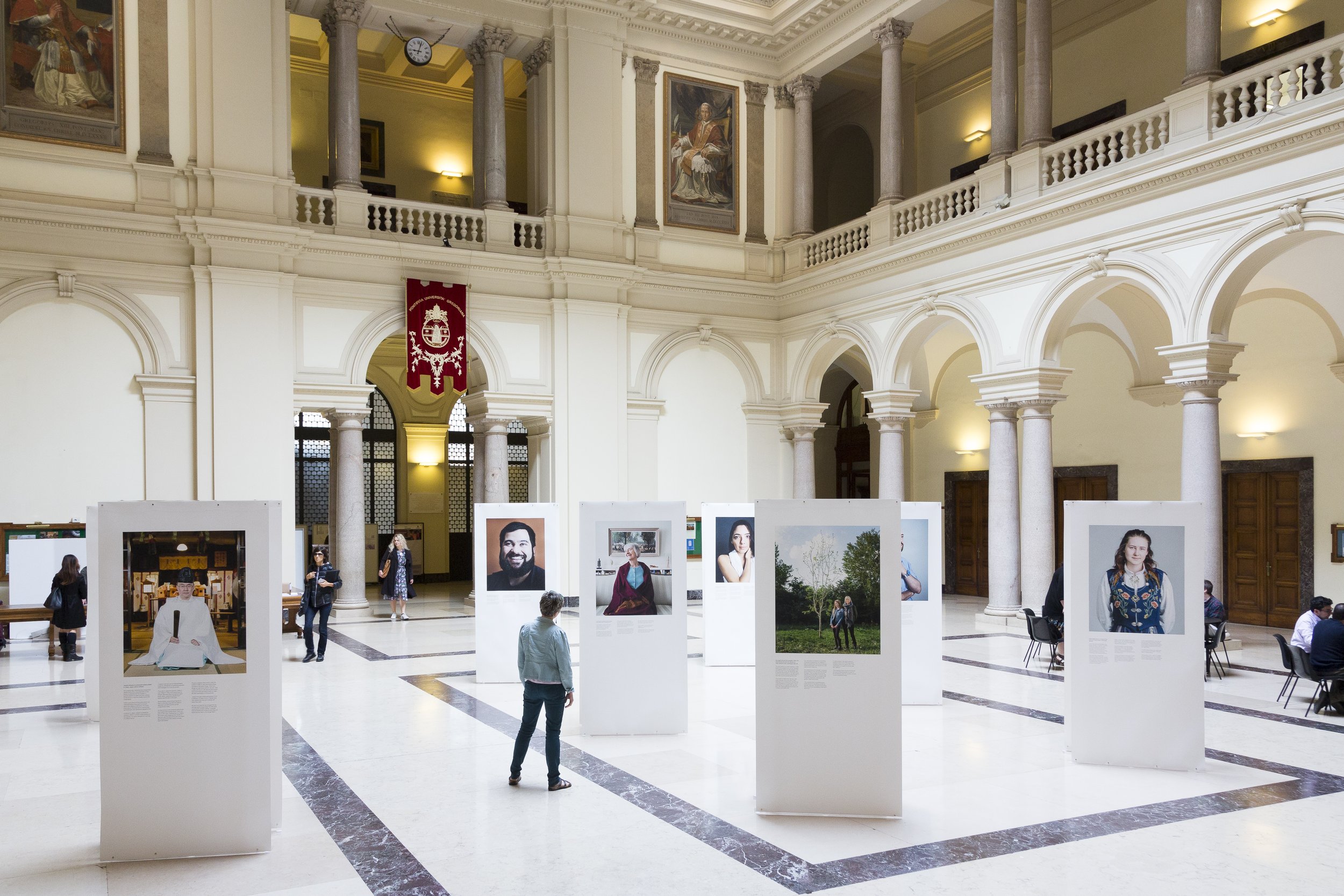Unbelievers
What do people who don’t believe in God believe in? Portraits from Brazil, Japan, Norway, the United Kingdom and the USA. Read more
In the US, those who say they are atheist, agnostic or “nothing in particular” is up from 17% in 2009 to 26% last year. In Britain, according to the most recent data, more than half he population proclaimed no faith in 2018, rising from 43% to 52% in a decade.
But there are many different ways of being an unbeliever – including labels such as atheist, agnostic, humanist, free thinker, sceptic, secular and spiritual but not religious. According to Understanding Unbelief, an academic research project based at the University of Canterbury, “unbelief in God doesn’t necessarily entail unbelief in other supernatural phenomena… Another common supposition – that of the purposeless unbeliever, lacking anything to ascribe ultimate meaning to the universe – also does not bear scrutiny.”
Who are the unbelievers, and what principles guide their lives? The British photographer Aubrey Wade met more than 30 people from five countries over the course of a year to find out. “Belief is a word we use all the time, often without really being able to explain precisely what it means,” he says. “And in practice most people hold at least some conflicting beliefs about the world.”
Wade says he was struck by “how many ways there are of making sense of life’s big questions, with and without a concept of God or gods. For some people unbelief and religiosity don’t go together at all, while for others they are comfortable bedfellows.” In Japan, for instance, “the distinction isn’t even relevant for most people”.
“The pandemic we’re living through has given us all reasons to reflect on what gives our lives meaning,” he adds. “I’ve learned that atheist individuals and cultures of unbelief are as diverse as religious ones. What unites them is the drive to seek meaning and purpose in life.”
Introduction by Harriet Sherwood / Interviews by Aubrey Wade
Take part in Aubrey's follow up project on nonbelief in the United States here.
Lola Tinubu is the co-founder of the Association of Black Humanists in London. ‘People see you as a traitor. They say, “Atheism is not African”'
Hedda Frøland is a member of the Humanist Youth Group in Sandnes, Norway. ‘My family had Christian confirmations. I chose another way’
Adam Cardone is a stage magician and a reverend in the Church of Satan, New York City. ‘We get called devil worshippers, but there’s no worship’
Philosopher and author Patricia MacCormack is an anti-theist, anti-humanist practitioner of chaos magic. ‘We need to rethink our relationship with imagination.’
Apostle Erlon Jacques presides over the Positivist Temple of Humanity, a church for atheists and agnostics, in Porto Alegre, Brazil.
For Jake Vargas, a student in Nebraska, an understanding of science and the natural world – ‘to my mind, the other side of theism’ – helps him understand transphobia.
Ron Millar from Washington, DC, runs the Freethought Equality Fund Political Action Committee, which helps candidates seeking election to public office who openly identify as humanist, atheist and agnostic.
Jay Livingstone, an agnostic, is searching for the soul. "Defining a concept of the soul is like trying to grasp soft sand falling through your fingers.’
Jan Pahl meditates most mornings in her sitting room in Canterbury, UK. ‘I don’t believe in God but that doesn’t mean I don’t have beliefs.’
Todd Kadish, an ex Modern Orthodox Jew living in New York City, values truth and scepticism. ‘The mystery of existence is perplexing.’
Yuko Atarashi is studying to be a Noh actress in Tokyo. ‘We came from nothing and go back to nothing. The purpose of life is to be present in the moment.’
Mario Leao, who has nine brothers and sisters, is the only atheist in his family. He lives in Porto Alegre, Brazil.
Robert Freudenthal is a member of a liberal synagogue in London, UK. "It’s OK to be 100% atheist and go to religious services."
Paulo Camargo is an atheist and communist in Rio de Janeiro, Brazil. ‘I believe life has no meaning. Full stop.’
Zayn Nehan convenes a queer mosque in Washington D.C. “It became easier to approach Islam in a new way when I admitted to myself that I just didn't believe in the idea of God."
Exhibition
Lives of Unbelief was exhibited at the Vatican’s Pontifical Gregorian University in Rome during the 2019 Understanding Unbelief conference. Marking the 50th anniversary of the Vatican's own Culture of Unbelief conference, the world's first international conference for the social-scientific study of atheism and non-religiosity held in 1969, Aubrey designed a bespoke installation that brought unbelievers and their stories, from five countries around the world, into the heart of the Vatican’s university to create an opportunity for encounter between believers and nonbelievers.
Interview
Listen to Aubrey discuss the unbelievers project, his reasons for doing it, and what he learned along the way, with journalist Rosie Dawson.


















